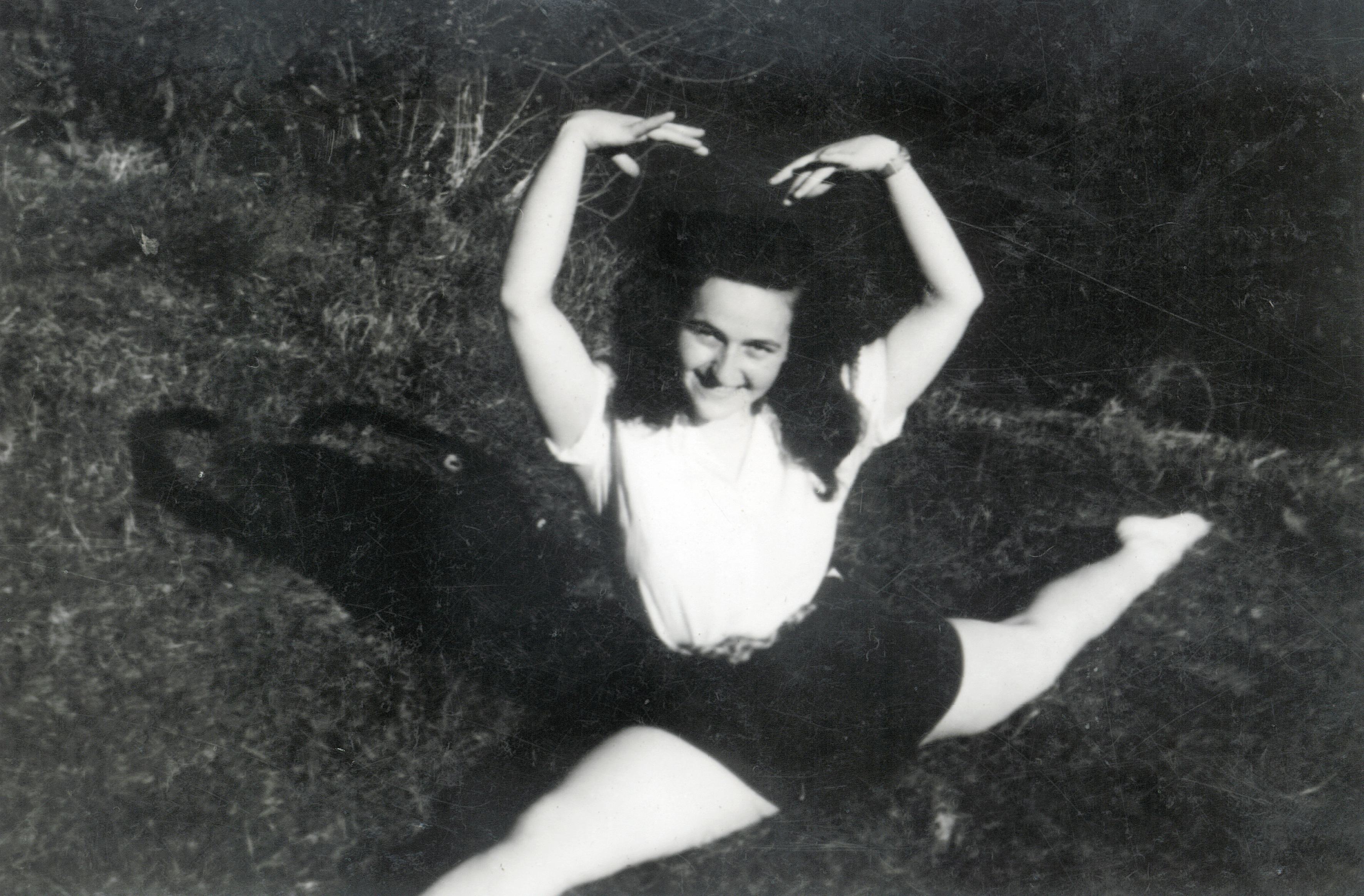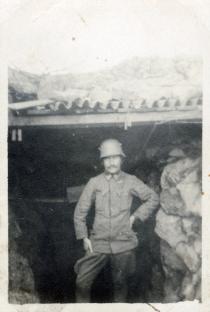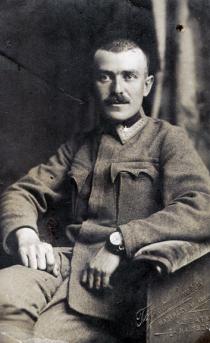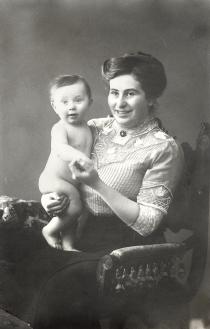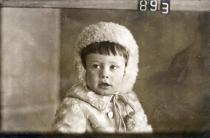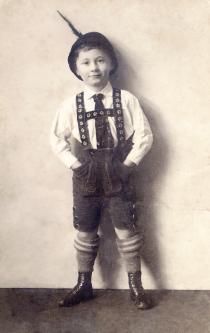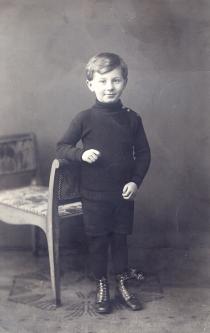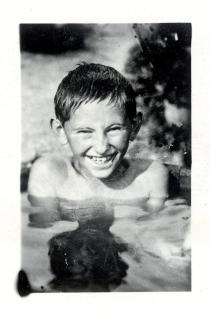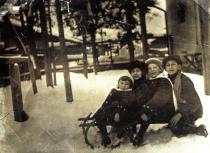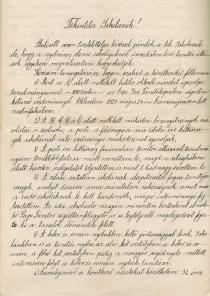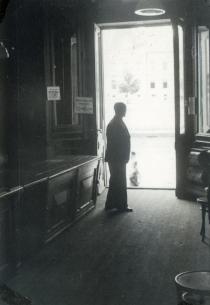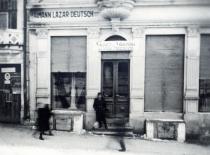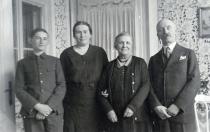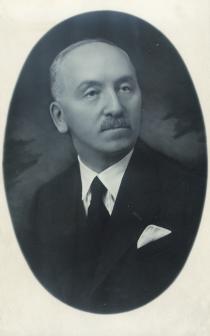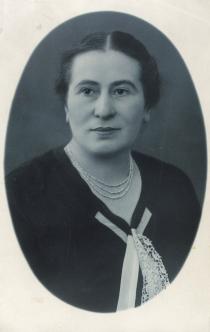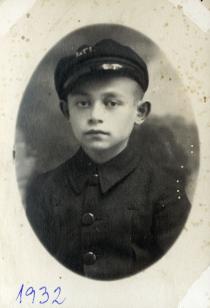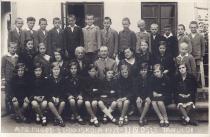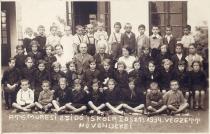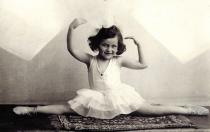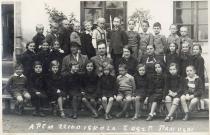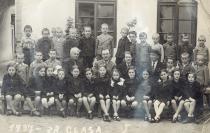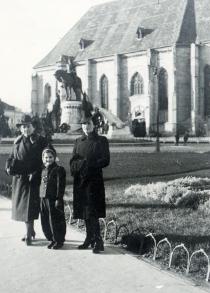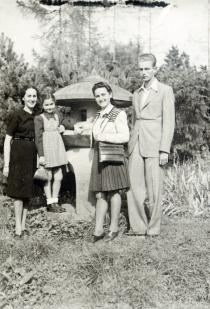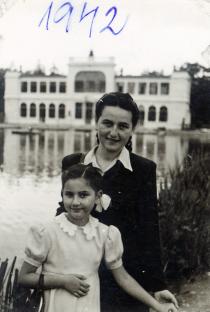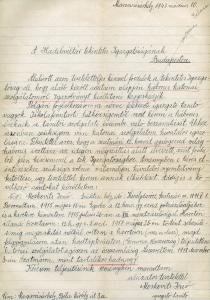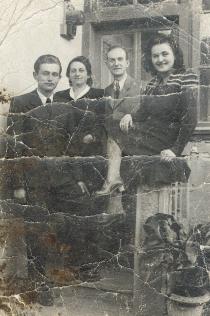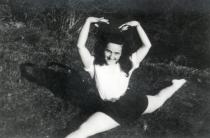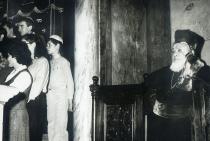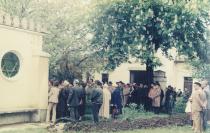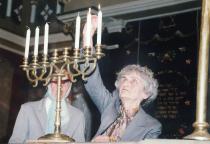This picture of me was taken after the deportation, in Marosvasarhely on 23rd June 1949. I think it was taken at the weekend-resort [swimming resort at the northern part of the city].
When we started over after the war, and old friends, girlfriends, acquaintances and classmates began to come home from deportation, we used to go there for a swim. In the summer we loved to spend our spare time there. On these occasions we used to talk about the old days and how many times I played in performances It was quite something to do those acrobatics I did back then. Someone asked me: 'Can you do the splits?' I said I could try - and that's when this picture was taken. I don't remember who took it. I didn't know my future husband Gyula Deutsch yet.
When I arrived home, the house already had many inhabitants, and different families lived in each room. It was very hard to find a home then. The Zsido Demokrata Szovetseg [Jewish Democratic Union] organized the reception very well: a sanatorium was set up on the corner of Koteles Samuel Street, and everyone who came home and had no place to stay, could go there. I think people were allowed to stay there for two weeks. A meal was given away for free, arranged by the Union. There were, of course, these American Jewish world organizations, which financed them so they could arrange it, because the people from the Union were also people who had just come home and thus they had no money. I ended up in the sanatorium because our house was full. There was the attic room in our house, three rooms below, and in the back there was the large kitchen people also used as a bedroom. Those who lived in the attic and the room below it emptied the room for me and moved to the attic. The original furniture wasn't there anymore, only what I could get: a painted cupboard, an oak dressing-table that initially belonged to my family; it was incomplete already, though, but I could move in.
When my girlfriend Lili, who had become ill, came home later, she too, was all by herself, and we moved into our house because this sanatorium only operated for a short while. We lived in the same room and we had a common bathroom since the house only had one. We had to cross the other rooms to get to the bathroom.
At that time the Joint helped the local organization to set up a girls' home and a boys' home in two houses that belonged to Jews who never came back. The girl's home was on Koteles Samuel Street, almost facing the University of Dramatic Art. The boys' home was somewhere around the main station, but I don't know exactly in which house. For those who came back alone and had nowhere to go houses with three, four or more rooms had been set up, with five or six beds in each of the rooms, because those were large rooms. These people even got free meals. Although we had somewhere to live, my girlfriend and I went to the girls' home to eat; they cooked there. An older lady who came back from the deportation took on the job of cooking for a certain number of people. Most of the ingredients were sent by the Joint, so they had no problem with the supplies, and she only had to organize things. The Joint sent different packages with clothes collected by the Jewish organizations there, and these clothes were distributed amongst the home-comers. We ate for a while at the home, but there was a small canteen nearby, ran by a lady I knew, and she offered to give me meals, and I didn't have to pay too much for them, so from then on I went there to eat.
